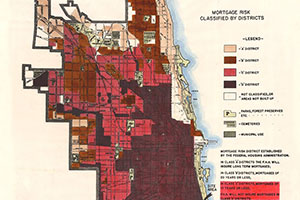How to Become a Police Officer: A Comprehensive Guide
NEWS | by
A police officer serves as a public servant responsible for maintaining law and order, ensuring public safety, and enforcing local, state, and federal laws. The role of a police officer involves a wide range of duties, including responding to emergencies, investigating crimes, arresting suspects, and testifying in court. Police officers are also tasked with community policing, building relationships with citizens, and promoting public trust in law enforcement agencies.
The function of a police officer is grounded in legal authority and public accountability. Officers must adhere to established protocols and constitutional standards, ensuring their actions align with the principles of justice and civil rights. They are expected to act with integrity, impartiality, and respect for the law, upholding the ethical standards of the profession.
Police officers play a crucial role in maintaining public order and promoting the rule of law. As such, the position demands a high level of commitment, professionalism, and a thorough understanding of the legal framework within which they operate.
Eligibility Requirements for Becoming a Police Officer
To become a police officer in the United States, candidates must meet specific eligibility requirements that vary depending on the jurisdiction and the law enforcement agency. These requirements ensure that prospective officers possess the necessary qualifications, character, and fitness to serve in a law enforcement capacity.
- Minimum Age and Education: Most police departments require candidates to be at least 21 years old, although some jurisdictions may permit individuals to apply at 18 or 20 with specific conditions. Additionally, candidates must have a high school diploma or equivalent (such as a GED), with some departments preferring or requiring college-level education or a degree in criminal justice.
- Background Checks: A thorough background check is conducted to assess a candidate’s criminal history and personal conduct. Candidates with felony convictions, serious misdemeanors, or other disqualifying conduct are generally ineligible to serve as police officers. Background checks also examine financial history, employment records, and other relevant factors.
- Physical Fitness: Police officers must meet specific physical fitness standards to perform their duties effectively. Physical fitness tests typically include running, push-ups, sit-ups, and other exercises to assess strength and endurance.
- Good Moral Character: Candidates must demonstrate good moral character and integrity, reflecting the values of the police profession. This requirement is assessed through background checks, interviews, and references.
- Legal Authorization to Work: Candidates must have legal authorization to work in the United States, typically through U.S. citizenship or permanent residency.
These eligibility requirements are designed to ensure that candidates possess the qualifications and attributes necessary for a successful career in law enforcement.
Education and Training for Police Officers
Education and training are critical components in preparing individuals to become police officers. Police departments may have specific educational requirements, while police academy training provides the foundational knowledge and skills required for the job.
- Educational Pathways: A high school diploma or equivalent is the minimum requirement for becoming a police officer. Some departments prefer candidates with college education or degrees in criminal justice, law enforcement, or related fields. College-level education can provide valuable knowledge of the legal system, criminology, and communication skills.
- Police Academy Training: Before becoming a certified police officer, candidates must complete a police academy program. Police academies offer comprehensive training that includes classroom instruction and practical exercises. The curriculum typically covers topics such as criminal law, constitutional rights, ethics, firearms training, driving skills, first aid, and defensive tactics.
- Hands-On Training and Field Exercises: Police academy training involves practical exercises to simulate real-life scenarios. Candidates practice arrest techniques, vehicle stops, crime scene management, and other essential skills. Field exercises are designed to prepare candidates for the realities of police work and ensure they can apply their training effectively.
Upon completion of police academy training, candidates must often pass certification exams and other assessments to demonstrate their competence. This certification process varies by state, with some requiring additional licensing or qualification exams.
Education and training for police officers serve to equip individuals with the knowledge and skills needed to uphold the law, ensure public safety, and interact effectively with the community. Comprehensive training is crucial to producing competent and responsible police officers who can serve with professionalism and integrity.
The Police Recruitment Process
The police recruitment process is a multi-stage procedure that evaluates a candidate’s suitability for a career in law enforcement. The process encompasses written examinations, physical fitness assessments, psychological evaluations, and interviews, among other components. Police departments follow structured protocols to ensure that recruits meet the necessary qualifications and possess the traits required for the role.
- Application and Preliminary Screening: The recruitment process begins with a formal application to the police department. Candidates must submit personal information, educational history, and employment background. Departments conduct preliminary screenings to ensure candidates meet basic eligibility requirements, such as age, education, and legal authorization to work in the United States.
- Written Examination: Many police departments require candidates to pass a written examination. This exam assesses cognitive skills, including reading comprehension, logical reasoning, and basic math. Some exams also test knowledge of law enforcement principles and criminal law.
- Physical Fitness Test: Candidates must complete a physical fitness test to demonstrate their physical capabilities. This test typically includes running, push-ups, sit-ups, and other exercises designed to evaluate strength, endurance, and agility.
- Background Investigation: A thorough background investigation is conducted to examine a candidate’s criminal history, credit report, employment record, and other relevant information. This process includes interviews with references and previous employers to assess the candidate’s character and suitability for law enforcement.
- Psychological Evaluation: Candidates undergo psychological evaluations to determine their emotional stability and suitability for police work. These evaluations often involve personality assessments and interviews with licensed psychologists.
- Oral Board Interviews: Candidates typically participate in one or more oral board interviews. These interviews assess communication skills, judgment, and other key attributes. A panel of law enforcement professionals conducts the interviews, asking scenario-based questions and evaluating the candidate’s responses.
Successful candidates who complete the recruitment process are eligible to attend police academy training, a critical step in becoming a certified police officer.
Completing Police Academy Training
Police academy training is a comprehensive program designed to prepare candidates for the demands of law enforcement. The training involves classroom instruction, hands-on exercises, and practical fieldwork. Police academies operate under the guidance of state certification boards, ensuring that the curriculum meets specific standards.
- Classroom Instruction: The academic component of police academy training covers a range of topics, including criminal law, constitutional law, ethics, police procedures, and community policing. Candidates receive instruction from experienced law enforcement professionals and legal experts.
- Firearms Training: Police academy training includes extensive firearms training. Candidates learn safe handling practices, marksmanship, and use-of-force protocols. They must pass firearms qualification tests to demonstrate proficiency.
- Defensive Tactics and Physical Skills: Candidates undergo training in defensive tactics, arrest techniques, and physical skills required for law enforcement. This training includes self-defense, handcuffing, and restraint techniques.
- Field Exercises: Police academies incorporate field exercises to simulate real-life scenarios. Candidates practice vehicle stops, crime scene management, and emergency response. These exercises prepare candidates for the realities of police work and help develop critical decision-making skills.
- Ethics and Professional Conduct: Police academy training emphasizes the importance of ethics and professional conduct. Candidates learn about the legal boundaries of police work, proper use of authority, and the need to respect citizens’ rights.
Upon successful completion of police academy training, candidates receive a certificate indicating their eligibility to become a sworn police officer. However, additional steps may be required to achieve full certification and licensing.
Certification and Licensing for Police Officers
Certification and licensing are essential steps in becoming a sworn police officer. The requirements for certification vary by state, with each state maintaining its own standards for police officer qualification. Certification and licensing ensure that police officers meet the legal requirements for serving in law enforcement.
- State Certification Boards: Most states have a certification board or agency responsible for overseeing the licensing of police officers. These boards establish the standards for certification and monitor compliance with those standards.
- Certification Examinations: After completing police academy training, candidates often must pass a certification examination to demonstrate their knowledge and skills. These exams typically test understanding of criminal law, police procedures, and other key topics.
- Oath of Office and Swearing-In: Candidates must take an oath of office, pledging to uphold the law and the constitution. The swearing-in ceremony officially marks a candidate’s transition to a sworn police officer.
- Continued Education and Training: Certified police officers are required to maintain their certification through continued education and training. This ongoing training ensures officers remain updated on legal developments, new police techniques, and changing community needs.
Certification and licensing establish a standardized process for becoming a police officer, providing assurance that officers are qualified and legally authorized to serve in law enforcement. Police departments and state certification boards work collaboratively to ensure that certification standards promote professionalism and accountability among police officers.
Career Development and Advancement in Law Enforcement
Career development and advancement in law enforcement offer various pathways for police officers to progress in their careers. Law enforcement agencies provide opportunities for specialization, promotion, and leadership roles, allowing officers to gain new skills and responsibilities. Career advancement is influenced by factors such as experience, education, and performance evaluations.
- Specialized Units and Divisions: Police departments often have specialized units and divisions that focus on specific areas of law enforcement. These can include detective bureaus, narcotics divisions, K-9 units, SWAT teams, cybercrime units, and more. Officers may choose to specialize in one of these areas, requiring additional training and certification.
- Promotions and Rank Structure: Law enforcement agencies have a rank structure that outlines the chain of command and career progression. Officers can advance to higher ranks, such as sergeant, lieutenant, captain, or chief, based on experience, performance, and leadership abilities. Promotions are typically achieved through a combination of written examinations, interviews, and supervisory evaluations.
- Leadership and Supervisory Roles: Experienced officers may be promoted to leadership and supervisory positions. These roles involve overseeing other officers, managing units or divisions, and making strategic decisions. Leadership positions often require additional training in management and organizational skills.
- Continuing Education and Advanced Training: Career development in law enforcement involves ongoing education and training. Officers may pursue advanced degrees in criminal justice or related fields, or attend specialized training programs to enhance their skills. Continuing education ensures officers stay current with changes in law enforcement practices and legal requirements.
- Interagency Opportunities: Police officers may have opportunities to work with other law enforcement agencies or federal organizations, such as the Federal Bureau of Investigation (FBI), Drug Enforcement Administration (DEA), or Department of Homeland Security (DHS). These interagency opportunities can provide unique career paths and broaden an officer’s experience.
Career development and advancement in law enforcement offer a range of opportunities for officers to build successful careers, contribute to public safety, and take on greater responsibilities within their agencies.
Conclusion: Pursuing a Career in Law Enforcement
Pursuing a career in law enforcement can be a rewarding and impactful choice. Police officers play a crucial role in maintaining public safety, enforcing the law, and building positive relationships with the communities they serve. The path to becoming a police officer involves a structured process, including education, training, certification, and continuous development.
A career in law enforcement requires commitment, integrity, and a dedication to public service. Officers must navigate complex legal frameworks, handle challenging situations, and work collaboratively with other law enforcement professionals. Despite the challenges, the career offers opportunities for growth, specialization, and advancement.
As law enforcement continues to evolve, police officers must adapt to new technologies, changing legal landscapes, and emerging community needs. The future of law enforcement depends on officers who are well-trained, ethical, and committed to serving the public with professionalism.
For those considering a career in law enforcement, it’s essential to understand the demands of the profession, the requirements for certification and licensing, and the opportunities for career advancement. With the right training, education, and mindset, individuals can build successful and fulfilling careers in law enforcement.
How useful was this post?













